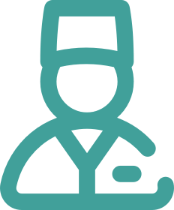查看更多
密码过期或已经不安全,请修改密码
修改密码
壹生身份认证协议书
同意
拒绝

同意
拒绝

同意
不同意并跳过





中国原创临床研究展播第二季活动
医学期刊主编面对面
Global Perspectives,Dialogue with the Editor-in-Chief of Gastroenterology
点击阅读
①主编面对面 | 中国胃肠病学临床研究如何突破瓶颈?Gastroenterology主编David Weinberg解析难点与重要性
With the widespread application of artificial intelligence in the medical field, how do you perceive its application prospects in gastroenterology? What are the potential challenges and opportunities?
随着AI技术在医疗领域的广泛应用,您如何看待其在胃肠病学领域中的应用前景?其潜在的挑战和机遇是什么?

《胃肠病学》杂志主编
David S. Weinberg 博士
That’s a hard question, and I’m not sure I have a definitive answer. I think artificial intelligence can play a role in supporting physicians’ diagnosis and other decision-making. However, whether it will serve as an ongoing tool or have a place in teaching is yet to be determined.
这是一个复杂的问题,我可能无法给出确切答案。AI在辅助医生诊断决策方面确有潜力,但它究竟会成为持续性诊疗工具还是教学辅助手段,仍需时间验证。
Ⅰ. AI in Endoscopy for Detecting Colon Polyps
Ⅰ.内镜领域的AI应用现状
I’m not aware of any journal-published papers showing that AI can notably enhance the ability to detect important colon polyps during endoscopy. This assumption hinges on the idea that when doctors learn to perform colonoscopies, they do it proficiently and don’t miss colon polyps.
目前尚无权威期刊论文证实AI能显著提升结肠镜检查中重要息肉的检出率。这种设想的前提是医生本身已具备熟练的结肠镜操作技能。
What AI does seem better at is finding smaller polyps, sometimes more effectively than humans. However, it’s unclear whether this has clinical significance. Tiny colon polyps usually will never be a problem. So finding them slightly better using AI might make for a nice research paper, but I’m not sure that it improves health care at all.
现有数据显示,AI在微小息肉识别方面或许略胜人类。但关键在于:这些微小息肉是否具有临床意义?多数情况下它们不会引发健康问题。因此,AI的这种“超能力”可能仅具有科研论文价值,对实际诊疗改善有限。
Ⅱ. AI in Medical Research
Ⅱ.AI在医学研究中的应用
On the other hand, AI, which drives large language models and is a different form of machine learning, may prove to be extremely useful in facilitating research. It can enable someone to review the charts of 1 million people. Manually reviewing these charts would be an impossible task. However, with the help of a computer-aided program, this task suddenly becomes feasible.
另一方面,驱动大型语言模型的人工智能,作为机器学习的一种不同形式,可能会在推动科研进步方面展现出巨大价值。它可以让研究人员审查多达100万人的病历,而这在手动操作下简直是难以想象的任务。
The reliable handling of very large volumes of data will unlock numerous potential research areas. Currently, even if you rely on a team of research coordinators and associates to review charts, these areas are out of reach.
凭借可靠处理海量数据的能力,它将开启无数潜在的研究领域。即便是配备了专业研究人员的团队,采用传统方法也难以达到如此规模的数据分析能力。
Ⅲ. Electronic Medical Records and AI
Ⅲ.电子病历与AI
As most medical records are becoming electronic, I’m not certain about the progress in China on this front. I’m confident it will happen if it hasn’t already. In the United States, though, nearly all paper charts have been replaced by electronic ones.
In theory, with electronic charts, you can conduct searches. However, you need computer programs to facilitate this. So, I see this as another promising area.
随着病历电子化的不断推进,在美国,几乎所有纸质病历都已被电子病历所取代。我不确定中国在这方面的发展情况,但相信即便尚未完全实现电子化,也正处于实现这一目标的阶段。
理论上,电子病历支持数据检索,但需要特定的软件程序来辅助完成。在我看来,这是另一个蕴藏着巨大的发展潜力的领域。
Ⅳ. AI in Direct Patient Care
Ⅳ. AI在直接患者护理中的应用
It’s true that people are often attracted by the idea that machines can be helpful. But in direct patient care, I predict that while AI models will likely complement physicians, it’s hard to envision them replacing doctors.
人们总容易被“机器辅助医疗”的概念吸引。但在直接护理场景中,我预计AI模型更多是作为医生的辅助工具,而非替代者。很难想象AI能完全取代医生的工作。
What are your expectations or suggestions for the upcoming "Showcase of Outstanding Original Clinical Research in China (Season 2)"?
对于即将开启的“中国之声,创新力量——中国原创优秀临床研究展播”第二季活动,您有何期待和建议?

《胃肠病学》杂志主编
David S. Weinberg 博士
Ⅰ. Difficulties in Clinical Research
Ⅰ.临床研究的现实挑战
I would love to see more outstanding clinical research in gastroenterology and have it applied. As I’ve mentioned before, around 80%~90% of Chinese submissions to Gastroenterology fall into either basic research or translational research. They aren’t clinical research in the traditional sense, which involves studying direct interventions on patients or the impact of external forces on them.
我非常希望看到更多优秀的胃肠病学领域的临床研究,并能够将其应用到临床。大约80%~90%的中国向《胃肠病学》杂志提交的论文属于基础研究或转化研究,而非传统意义上的临床研究,即直接干预患者或研究外部因素对患者影响的研究。
Good clinical research is extremely difficult to carry out, regardless of where in the world you are. This doesn’t imply that basic and translational research is easy. To some extent, in basic and translational research, especially when working with animal models, you can more easily control the factors and conduct studies under the conditions you set. However, in clinical research, I can’t control whether a patient will take a medication or not in a trial. I can make suggestions, but patients will act according to their own will.
无论在世界哪个地方,优秀的临床研究都极其难以开展,当然这并不意味着基础和转化研究简单。在某种程度上,在基础和转化研究中,尤其是使用动物模型时,你可以更容易地控制因素,并在你设定的条件下进行研究。但是在临床研究中,我们无法控制患者在试验中是否服药。我可以提出建议,但患者会根据自己的意愿行事。
Ⅱ. Importance and Challenges of Clinical Research
Ⅱ.临床研究的重要性和挑战
I hope that the showcase of outstanding original clinical research not only highlights the excellent research being done in China but also shows your readers how challenging it is to conduct such clinical studies and how important they are.
我希望这次“中国原创优秀临床研究展播”活动不仅能展示中国正在进行的优秀研究,还能向读者展示开展这类临床研究的挑战性和重要性。
In the United States, where I practice, patients participate in clinical research out of their own will, not because they are forced. The same goes for China. This means that we rely on people’s altruism to take part in trials that may or may not have immediate value for them. If someone is in a tough situation with cancer and there are no good treatment options, participating in a clinical trial can be not only an act of altruism but also a desire to find a better-or longer-way to live through a different treatment and compare it with the current standard of care.
无论在我执业的美国,还是在中国,患者参与临床研究是出于自己的意愿,而不是被迫。这意味着我们依赖于人们的利他主义来参与可能对他们没有直接价值的试验。对于那些患有癌症且缺乏有效治疗手段的患者而言,参与临床试验既是贡献社会,也是为自身寻求生存机会,并与现有标准疗法对比疗效。
So, to answer your question, I’d like your showcase to not only talk about specific trials but also emphasize how difficult it is to conduct this kind of research and how important it is for all of us. When people get the chance to participate in these trials, they should think seriously about it. In the United States, many people simply say no to participating in a trial without considering what that decision means. I won’t force anyone to join a trial as it’s always their choice. But I believe that the challenges of conducting these studies well are often under-appreciated. Investigators whose research gets featured in your newspaper should be very proud of themselves.
所以,对于您的问题,我希望本次展播活动不仅能讨论具体的临床试验,还要着重强调开展此类研究的难度以及其对我们所有人的重要性。当人们有机会参与这些试验时,他们应该认真考虑。在美国,许多人会毫不犹豫地拒绝参与试验,却没有意识到这个决定意味着什么。我始终尊重每个人的选择,不会强迫任何人加入试验。然而研究者需要付出巨大努力来克服这些挑战,而这些挑战常常被低估。因此我认为,那些被《中国医学论坛报》特别报道的研究人员,应该为自己的成就感到自豪。
编辑手札:当“中国原创优秀临床研究展播”活动筹备组将《胃肠病学》主编访谈列为重点选题时,我们面对的是一个看似闭环的难题:如何让国际权威期刊掌舵者真正听见中国学者的声音?这个问题的答案,最终由北京友谊医院消化内科施海韵老师的帮助下得以书写。
作为《中国医学论坛报》与首都医科大学附属北京友谊医院合作专栏——《胃肠病学》前沿速递的学术负责人,施老师身上有着新一代中国医学学者的典型特质——既有深耕消化疾病研究的学术锐度,更对胃肠病学领域的学术交流充满热情。在得知我们的困境后,她第一时间联动其博士导师、中国香港中文大学陈家亮教授。作为《胃肠病学》Senior Associate Editor,陈教授不仅是亚洲胃肠病学界的重磅专家,更是国际学术共同体中备受尊敬的“架桥者”。正是这条跨越京港的学术链,让我们的采访提纲最终呈现在Dr. David S. Weinberg案头。
特别触动我的是施老师那句:“非常愿意帮助,好研究不该困在语言屏障里。”这句话恰如其分地注解了此次合作——从专栏建设到顶刊对话,本质上都是为了让中国医学创新的“地质层”被世界看见。当Weinberg主编在访谈中数次提及中国学者的大规模队列研究优势时,我仿佛看见无数个“施海韵”在实验室与临床间奔走的剪影。
这次珍贵的采访机会得以实现也给了我们最珍贵的启示:当中国学者以解决真实世界问题为锚点,当学术媒体以架桥为己任,那些曾经遥不可及的国际权威期刊对话,终将成为推动医学进步的寻常风景。
第二季“中国之声,创新力量——中国原创优秀临床研究展播”活动即将再次起航,敬请期待!

END
查看更多